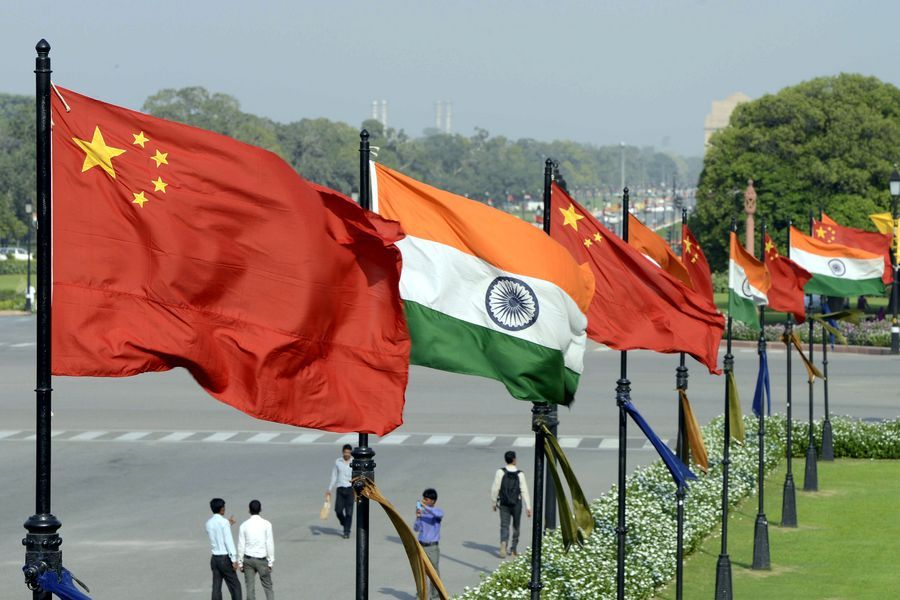
Indian and Chinese national flags flutter side by side at the Raisina hills in New Delhi, India, in this file photo. (Photo: Xinhua)
Although Chinese State Councilor and Foreign Minister Wang Yi and his Indian counterpart announced on Friday that a consensus had been reached on reducing the border tensions between the two countries after their talks in Moscow, some Indian media outlets continue to speculate on the tensions by fomenting nationalism, jingoism and populism.
Underlying this irresponsible fanning of irrational hysteria by the media is the targeting of Chinese apps, companies and imports by the Narendra Modi administration. The government's campaign against everything Chinese is providing the Indian media with the gasoline they are using to fuel the flames of ultra-nationalism, indicating that New Delhi will need to demonstrate it is willing to act in good faith to materialize the aforementioned consensus if public sentiment is to be taken off the boil.
The question is which party's interests New Delhi is trying to serve by intentionally expanding the tensions from limited border areas to trade and economic cooperation.
That its attacks on Chinese businesses emulate those initiated by the US administration raises the possibility that they may not have been done in the heat of the moment but are instead part of a coordinated squeeze being put on the Chinese economy by the two administrations. If that is indeed the case, New Delhi should now desist and uphold the consensus it reached with Beijing that confrontation is not in the interests of either India or China.
As well as the two foreign ministers announcing the two sides had agreed to disengage their troops along the border, they also said the two sides had agreed to not let their differences become disputes and to take guidance from the previous consensuses reached between Modi and President Xi Jinping during their two informal face-to-face meetings in Wuhan and Chennai, when the two leaders concurred on enhancing the closer partnership of the two countries and strengthening the synergy of their development strategies.
India and China are neighbors and forging a stronger partnership would create development opportunities for both.
In fact, many Indian people and companies make a living through the banned Chinese apps, which Indian companies cannot launch in a short time, and they have seen their livelihoods and businesses seriously impacted by the ban. But their voices are silenced in the vortex of the fanatical national sentiment calling for boycotting Chinese apps and products.
In contrast, thanks to the composure and restraint exercised by the Chinese government in dealing with relations with India — no trade and economic countermeasures have been taken — there has been no similar anti-India frenzy among the Chinese public, and Indian companies and citizens' legal rights are well protected.
It is time for New Delhi to calm the situation, and not only on the border, by matching its deeds with words.


